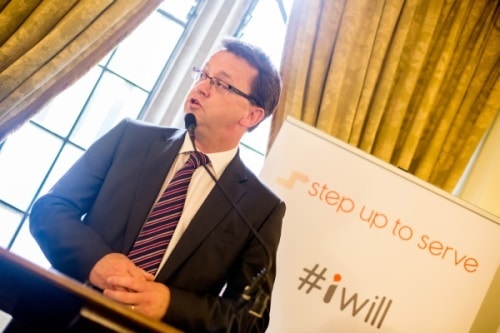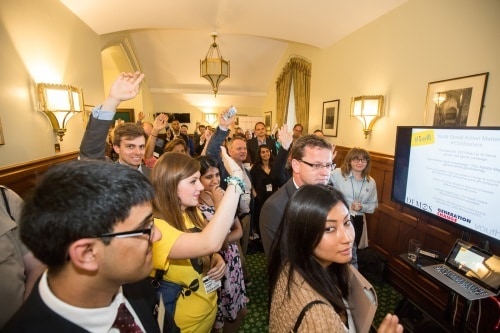Yesterday Future Foundations went to the Houses of Parliament to see the launch of ‘Service Nation 2020’, a Demos report examining the positive impact of youth social action on the individual and to society.
Hosted by Minister for Civil Society Rob Wilson on a muggy Monday evening, Westminster was buzzing as representatives of the country’s leading social action organisations came together at the home of British politics to celebrate social action and put our collective weight behind the reaching the government’s target of engaging 60% of young people in volunteering by 2020.
The report presents the most compelling evidence to date of the ‘double benefit impact’ of voluntary service (drawing on five years worth of evaluations of National Citizen Service, data from the USA’s Americorps programme and reports produced by the Behavioural Insights Team and Columbia University) and makes a number of recommendations to further the benefits.


Here’s a selection of their findings:
- Evaluations of NCS show participants develop useful skills for the future, realise they are more capable than they previously thought and become more confident about securing a job in the future.
- Research from the US, Department for Education, Ofsted and NCS suggests that social action can improve motivation and attendance in school and lead to higher attainment.
- Using randomised control trials with three social action providers, the Behavioural Insights team found strong positive correlations between social action and character attributes like empathy, problem solving, cooperation, grit, resilience, and a common sense of community.Research by McKinsey suggests that for every £1 invested in service year programmes, £2.70-£4.30 of benefits are achieved.
- 8 in 10 NCS graduates feel more positive towards people from different backgrounds after taking part in NCS.
- People who have taken part on youth social action rate higher in life satisfaction than those who have not.
The report makes a number of key recommendations to government:
- Develop a comprehensive, cross-departmental five-year national strategy for youth social action, through the Office of Civil Society
- Establish an independent social action coordinating body to implement this strategy – coordinating a youth social action fund that would bring together contributions from public and private sectors, administering competitive strategic grants, and supporting central Government departments and local authorities to encourage youth social action to be incorporated in more policy areas
- Embed social action into schools, through a social action ‘GiveBacc’ to run alongside the English Baccalaureate or encouraging students to take part in addition to their work experience placements.
- Champion the development of full-time social action “service year” placements as an alternative pathway for school-leavers, which could also potentially count towards University credit
- Support the creation of a quality mark for social action provision, which would formally recognise organisations focused on the important task of measuring impact.
The last five years has seen youth social action in the UK has develop into a cohesive movement, with a common focus and ambitious aims. Future Foundations is proud to be a leader in this field through our delivery of NCS and taking social action to schools through programmes such as Junior Social Apprentice. But there is still a significant amount of work to do over the next five years. A renewed commitment from the Government is vital to realising the full potential of youth social action and achieving the prime minister’s ambitious vision for a flourishing service nation of civic activism.
It’s an important step to see service learning gaining credibility, proof and political momentum. It is our hope that this report catalyses increased support and funding, pushing social action up the agenda in policy and schools. Achieving 60% engagement in volunteering by 2020 will be a huge task but one we are very much looking forward to helping to make a reality!
Take a look at Future Foundations' programmes

